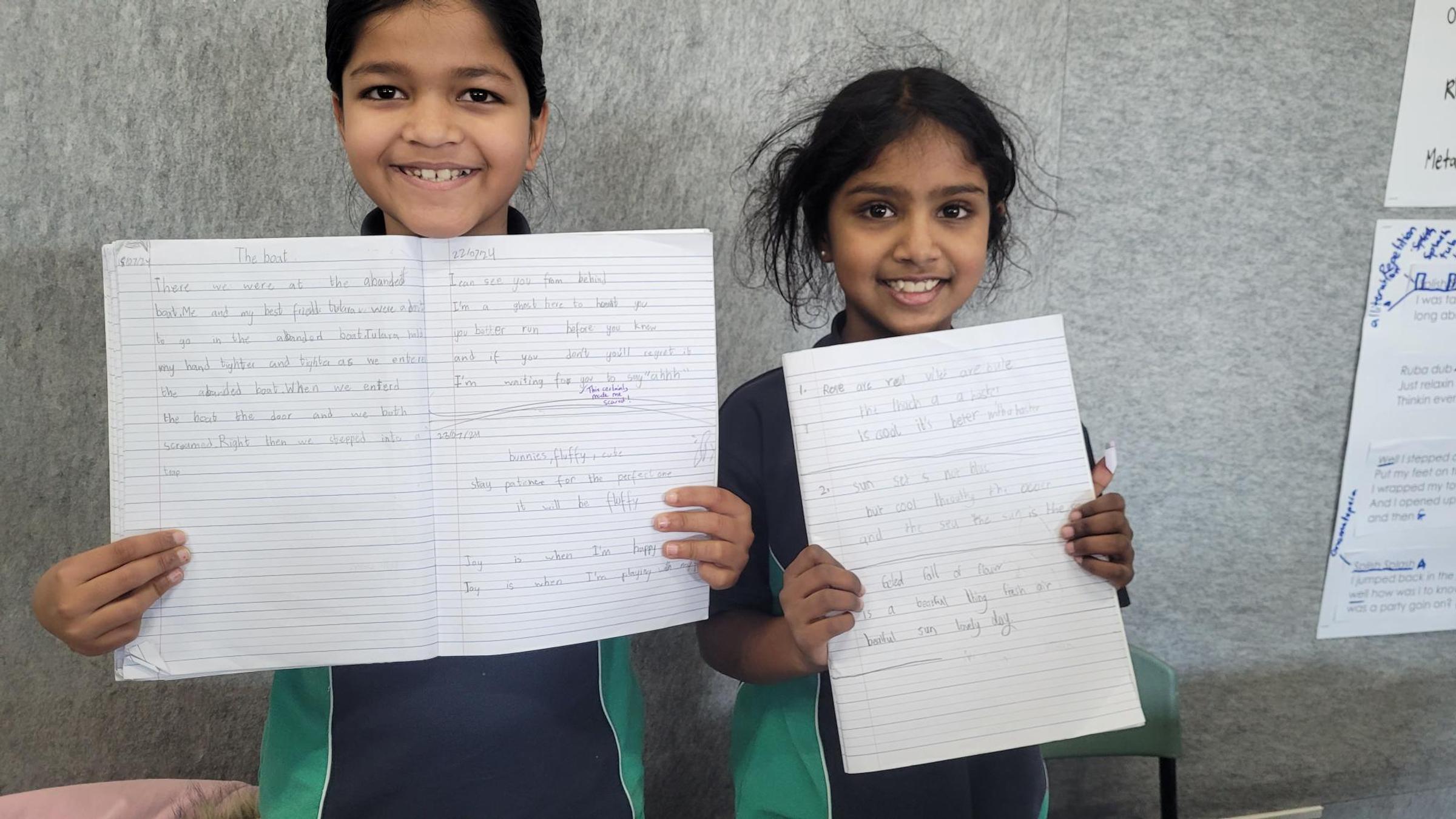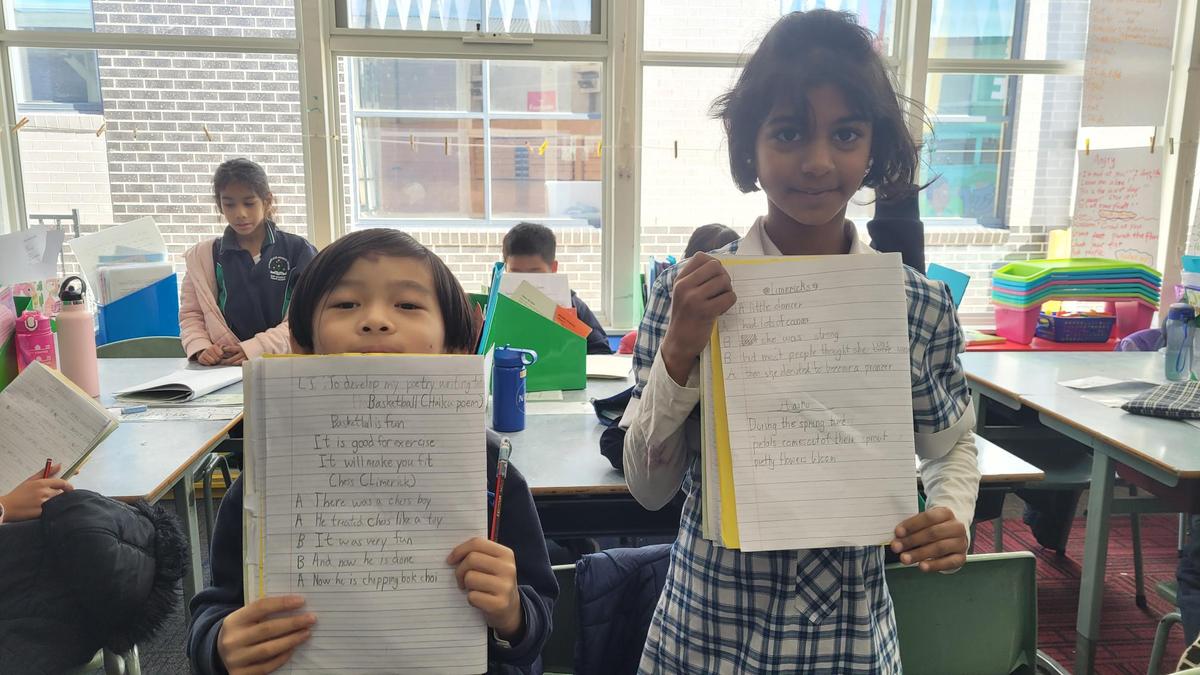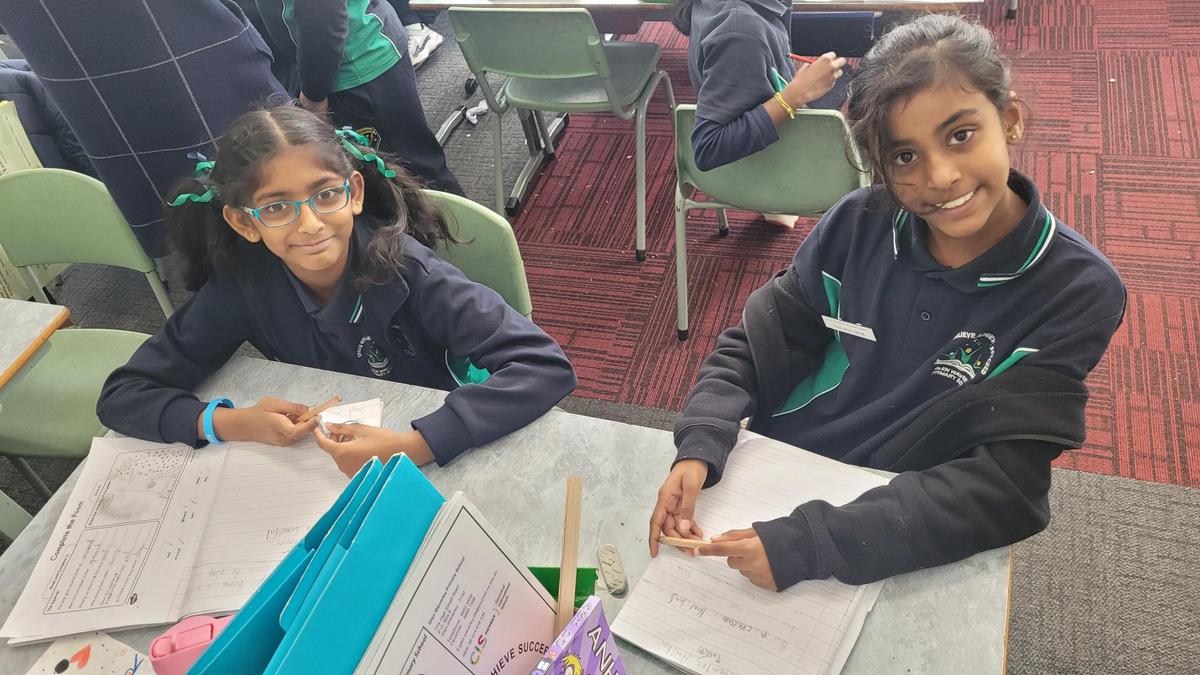English

Reading
The Reading and Viewing curriculum for this term will be structured with a focus on further developing students' understanding and enhancing their learning experiences. Students will be exposed to a diverse range of CAFÉ reading strategies to support accurate reading and comprehension of different types of texts, including letters, emails, and a range of poetry. Throughout the term, students will actively engage in comparing and contrasting texts, identifying the author's purpose, creating mental images, and tuning into interesting and emotive language as they analyse various texts.
As part of the Level Three Home Reading program, it is an expectation that students read for fifteen minutes each night and record this in their diaries. It would be wonderful if you could support your child’s reading and assist them with their comprehension by discussing the book with them.
Key Vocabulary:
- Descriptive
- Emotive
- Stanza
- Verse
- Formal
Writing/Spelling/Grammar
In Writing, students will be exposed to a variety of genres, authors, and vocabulary. To begin the term, students will immerse themselves in a variety of poetry styles. They will be exposed to and discuss the characteristics of different poems, including structure, vocabulary, themes, and rhythm and rhyme. The learners will visualise meaning and describe the emotive effect a poem has on them as an individual. Students will explore specific and powerful vocabulary around ideas of personal interest, justifying their language and stylistic choices when creating poems. They will construct and revise their own poems using a style of personal preference.
In Spelling, students will select personalised and class focus spelling words. Personalised words will come from learners’ reading and writing, whilst focus words will come from class weekly phonics or morpheme studies. Students will conduct personalised spelling inquiries into their spelling words, investigating the origin, spelling patterns, and meaning of their words.
Key Vocabulary:
- Emotive Language
- The 5 senses – Sight, Hearing, Taste, Touch, Smell
- Personification
- Compose
- Digital Communication
How can you support your child’s English learning at home?
- Discuss ideas of personal interest in everyday life to stimulate ideas for writing poetry, such as nature, hobbies, or family experiences including outings, meals, and games.
- Talk about the five senses, (touch, taste, see, hear, smell), that you experience when engaging in everyday family activities, such as when playing at the playground or going out for dinner.
- Practice personalised spelling words by discussing the meaning of words and using the ‘look, say, name, cover, write check’ strategy.


